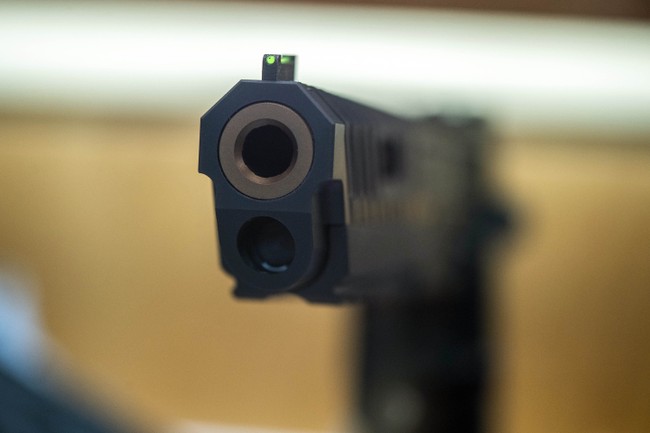By now, we all know what red flag laws are. You’ve no doubt seen a thousand stories about them and what they do, both from the pro- and anti- side of the debate. You know full well the arguments against them.
And we all know the typical arguments in favor of them, too.
However, those aren’t exactly winning converts. People aren’t thrilled about the idea of taking someone’s Second Amendment rights away while also denying them their due process rights, too.
But as Nevada debates just such a law, one lawmaker’s best argument is…well, the best way I can phrase it is to call it an outright lie.
Gun rights advocates spoke Wednesday against proposed legislation meant to keep weapons away from people experiencing a mental health crisis.
It’s a murky area of Nevada law that even makes some police officers uncomfortable. The situation can come up when a person is threatening suicide. That’s not a crime, and so police don’t do the same things they do when a person is being placed under arrest.
Senate Bill 347 (SB347) would allow police to confiscate guns from people who could be a threat to themselves or family members. Police could hold the firearm for up to 30 days. The bill is sponsored by Democratic Sen. Melanie Scheible, who represents District 9 in the southwest Las Vegas valley.
“A mental health crisis hold comes at kind of this intersection,” Scheible said. “The person’s not being arrested, so they are not losing the same constitutional rights that they would lose if they were going to be incarcerated. And so, a law enforcement officer does not have the same ability to simply remove a firearm the way they would if someone was being arrested.”
OK, so maybe lie is a little harsh, because everything she says is factually correct, but she’s using it in a way that gives someone a false impression, and she’s doing it on purpose.
I don’t know what to call that except a lie, though.
Yes, someone being arrested will have their gun taken by police. However, they’re getting due process along the way. They get their guns back if they’re found not guilty, and they don’t have to prove they’re somehow innocent. In the process, they have a right to an attorney. Even if they can’t afford one, they’ll get one just the same, which means at least someone is theoretically defending them with their best interests in mind.
Red flag laws, however, revolve exclusively around claims made by a third party. Because it’s a civil action, there’s no right to a court-appointed attorney, which means you either shell out the cash for your own or you’re forced to go it alone.
There’s a lot lower standard of evidence needed to take someone’s gun versus making an arrest. Someone could tell a cop that they wish they were dead, but that’s not enough for the officer to make an arrest or anything else in and of itself. They have to dig deeper and may learn that it’s just a vague feeling, but not something they’re interested in bringing about.
But that same statement might get their guns yanked from them. That might actually make things worse in some cases, because I know that for me, handling my firearms brings a weird sort of peace to me. I’m enthralled by the mechanisms, the hundred different moments of genius that all came together to make something that keeps me and my family safe.
Take that away from someone who sees it that way and you take away that oasis of calm out of a misguided sense of whatever.
Plus, again, the person arrested gets due process at every step of the way, whereas the person hit with a red flag law doesn’t get that.
So Schieble is trying to create a false impression of what’s going on in both of these circumstances.
She’s also ignoring that every state in the nation has a law allowing someone who presents as dangerous to themselves or others to be held for 72 hours in a psychiatric facility. If someone is truly a danger, why let them walk the streets? Even if you take their guns, you’re not taking their car, knives, razor blades, rope, or anything else they could use to harm themselves or someone else.
Whether that’s willful or not is unclear, but considering the way she misrepresented things, I think we all know which it is.
Read the full article here












